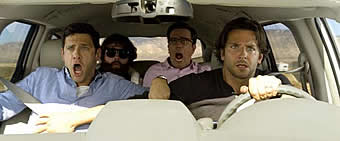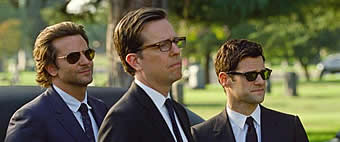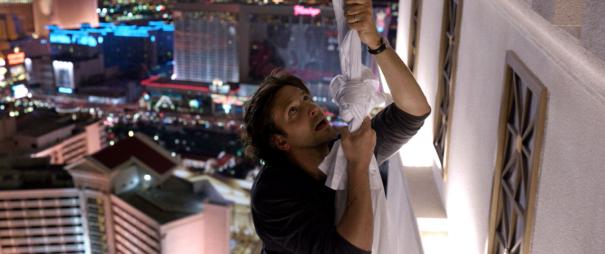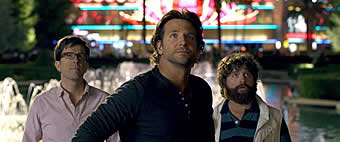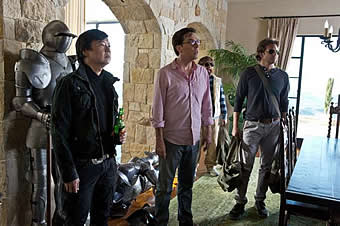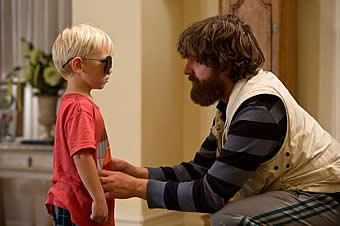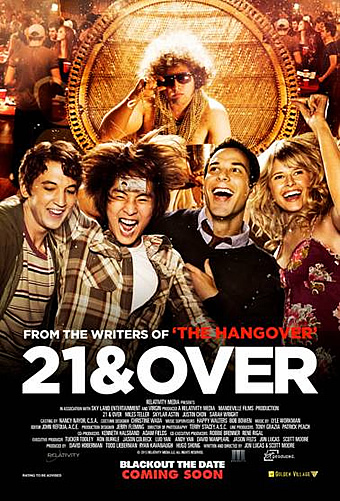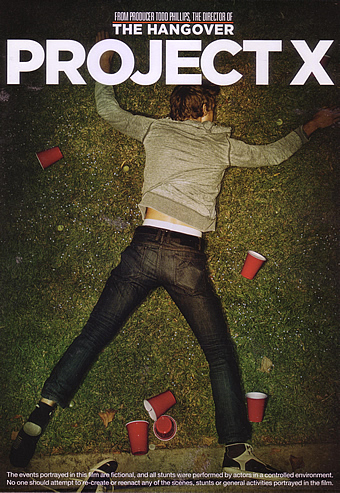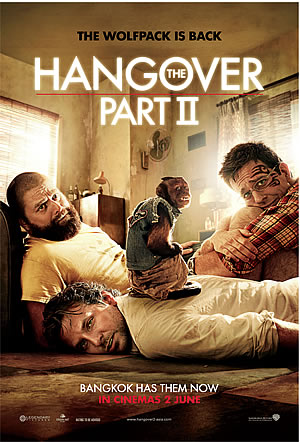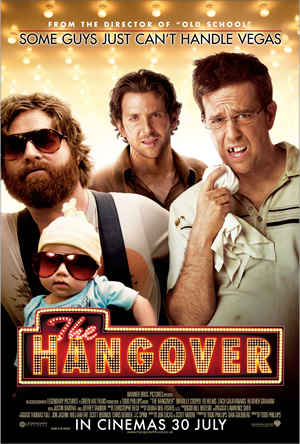THE HANGOVER PART III (2013)
Genre: Comedy
Director: Todd Phillips
Cast: Bradley Cooper, Ed Helms, Zach Galifianakis, Justin Bartha, Ken Jeong, Heather Graham, Jeffrey Tambor, Gillian Vigman, Sasha Barrese, Jamie Chung, John Goodman
RunTime: 1 hr 40 mins
Rating: M18 (Coarse Language And Some Nudity)
Released By: Warner Bros
Official Website: http://www.hangoverpart3.com/
Opening Day: 30 May 2013
Synopsis: It’s been two years. Phil (Bradley Cooper), Stu (Ed Helms) and Doug (Justin Bartha) are happily living uneventful lives at home. Tattoos have been lasered off, files purged. The last they heard from disaster-magnet Leslie Chow (Ken Jeong), he’d been tossed into a Thai prison and, with him out of the way, the guys have very nearly recovered from their nights prowling the seamy side of Las Vegas in a roofie’d haze, and being kidnapped, shot at, and chased by drug-dealing mobsters in Bangkok. The only member of the Wolfpack who’s not content is Alan (Zach Galifianakis). Still lacking a sense of purpose, the group’s black sheep has ditched his meds and given into his natural impulses in a big way—which, for Alan, means no boundaries, no filters and no judgment—until a personal crisis forces him to finally seek the help he needs. And who better than his three best friends to make sure he takes the first step. This time, there’s no bachelor party. No wedding. What could possibly go wrong? But when the Wolfpack hits the road, all bets are off. “The Hangover Part III” is the epic conclusion to an incomparable odyssey of mayhem and bad decisions, in which the guys must finish what they started by going back to where it all began: Las Vegas. One way or another…it all ends here.
Movie Review:
How do you achieve an “epic finale to the Hangover trilogy”? By veering entirely from formula it seems. After being accused of essentially rehashing the winning format of the first movie for a more outrageous but all-too similar sequel, filmmaker Todd Phillips has taken a complete departure from the first two movies for his three-quel - most significantly, the fact that there isn’t even a hangover here.
Gone with the titular premise is the backward structure too - the events unfolding entirely in chronological order - beginning with what is probably the most memorable scene in the movie. We’re talking about the graphic decapitation of a giraffe while being transported by the deranged man-child Alan (Zach Galifianakis) in a trailer attached to his sports car, causing a massive freeway pileup and, shortly after, the death of his own father Sid (Jeffrey Tambor) due to sheer exasperation.
As a favour to his family, the other members of the Wolfpack - Phil (Bradley Cooper), Stu (Ed Helms), and Doug (Justin Bartha) - agree to stage an intervention by driving Alan up to a rehab facility in Arizona. That intervention turns out to be the event which precipitates the rest of the action - en route, the quartet are ambushed by thugs working for the gangster Marshall (John Goodman), who kidnap the ever hapless Doug and force the rest to reconnect with their love-hate pal Mr Chow (Ken Jeong) in order to retrieve some stolen gold.
Their journey will take them first to Tijuana where Mr Chow has fled and then - for no other reason than narrative contrivance - back to Vegas where it all began. Unfortunately, whether by the refreshing hilarity of the first movie or the familiar but still uproarious results of its sequel, the gags in this trilogy capper just fall short. The heist which forms the raison d’etre of their Tijuana detour has but one moment of inspiration - Mr Chow’s inability to perceive colour; and the Vegas shenanigans - entering Mr Chow’s penthouse suite at Caesars’ Palace using tied-together bedsheets, Chow’s subsequent escape by parachute, and Stu’s frantic chase in a limousine - feel bland and uninspired compared to their first visit to Sin City.
Not only do the jokes hardly raise a chuckle, the characters feel more disconnected than ever. Sorely missing here is the chemistry among the stars and their characters that made the two earlier movies such a punchy delight. Banking entirely on fan familiarity, neither Phillips nor his co-writer Craig Mazin bother to build any meaningful dynamic between the de facto group leader Phil and the straight-laced worrier Stu, or for that matter among Phil, Stu and the infantile Alan. Instead, they cheaply turn what had been a tender bromance between Phil and Alan into a none-too subtle physical attraction that the latter develops for the former. Yes, it says a lot when the most interesting character here is one with less than ten minutes of screen time - that is, a mean-talking Vegas pawnbroker played by Melissa McCarthy who develops a mutual soft spot for Alan.
Phillips’ apathy for the characters this time round seems to have rubbed off on the actors. Cooper sleepwalks through the role as if pulling in an obligation before moving on to better and more deserving stuff. Helms looks similarly disengaged, while Galifianakis’ shtick offers little more than what he has already done in the last two movies. Only Ken Jeong possesses a modicum of appeal here, though it is doubtful if everyone will take to his whiny sociopathic tendencies.
And so it is with a whimper, rather than a bang, that ‘The Hangover’ trilogy comes to a close. What started as a politically incorrect and cleverly irreverent R-rated comedy built on a novel narrative twist has since ditched such a premise in favour of a cat-and-mouse chase that has lost both its novelty as well as its ingenuity along the way. In no way is this the “epic finale” that it so deludedly bills itself as, with adjectives such as “dull” and “lacklustre” ultimately more befitting of what is hopefully the end of a franchise that has run out of steam. When Helms turns up in an epilogue with boobs, you know that what used to be caustic, comical and subversive has now turned cheap, crass and plain desperate.
Movie Rating:



(Far from the “epic finale” it bills itself as, this trilogy capper is a dull and lacklustre end to a franchise that has lost its titular premise and apparently its sense of humour along the way)
Review by Gabriel Chong
You might also like:
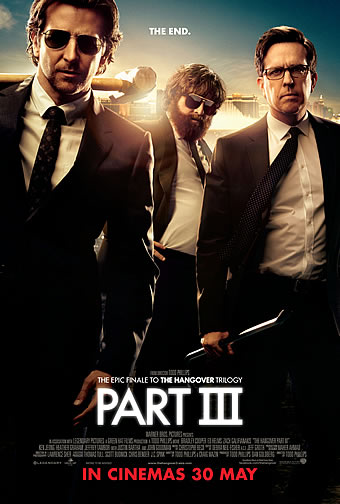
Movie Stills
